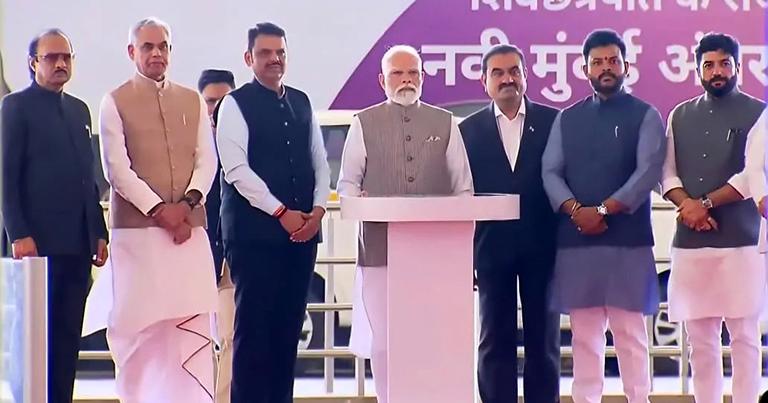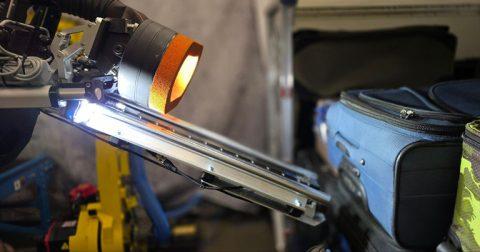
Prime Minister Narendra Modi has officially inaugurated the new Navi Mumbai International Airport (NMIA), marking a major milestone in India’s aviation infrastructure development. The long-anticipated second airport for Mumbai has been designed to transform the region into one of Asia’s leading connectivity hubs.
Speaking at the inauguration ceremony, the Prime Minister described NMIA as “a project that exemplifies the vision of a developed India,” highlighting its role in connecting Maharashtra’s farmers, small industries, and entrepreneurs directly to international markets. “This airport will not only strengthen Mumbai’s position as a global hub, but also accelerate economic growth across the region,” he said.
Developed through a public-private partnership between Mumbai International Airport Limited (MIAL) – a subsidiary of Adani Airport Holdings Limited (AAHL) – and the City and Industrial Development Corporation (CIDCO), NMIA represents a defining stride in India’s long-term infrastructure vision under the Viksit Bharat 2047 agenda.
During the event, Prime Minister Modi was joined by senior government and industry leaders, including Maharashtra Chief Minister Devendra Fadnavis, Union Minister for Civil Aviation Ram Mohan Naidu Kinjarapu, and Adani Airports Director Jeet Adani. The delegation toured the new terminal and reviewed its advanced technologies and design features.
Adani Group Chairman Gautam Adani said the new airport “architects Bharat as a gateway and one of the world’s most indispensable crossroads,” adding that the infrastructure “creates tomorrow’s exponential possibilities” for India’s aviation sector.
NMIA has been envisioned as part of a dual-airport system for the Mumbai Metropolitan Region, complementing Chhatrapati Shivaji Maharaj International Airport (CSMIA). The airport opens with a capacity of 20 million passengers in its first phase, with plans to scale up to 90 million through multiple terminals and four runways.
Designed as a multimodal hub, NMIA will be seamlessly connected to the Mumbai Trans Harbour Link, Mumbai and Navi Mumbai Metro lines, suburban rail, and planned waterway networks – aiming to reduce travel times and enhance cargo and passenger flows across western India.
The airport’s design, inspired by the lotus flower, integrates Indian cultural motifs with sustainability-driven engineering. It will include dedicated cargo and perishables terminals to strengthen India’s trade and logistics capabilities.
“NMIA unites cutting-edge technology, sustainability and a passenger-first experience,” said Jeet Adani, Director, Adani Airport Holdings Ltd. “By complementing CSMIA, it reinforces Mumbai’s role as a global aviation hub and sets a blueprint for future-ready airports nationwide.”
The inauguration of NMIA underscores India’s ambition to create next-generation aviation infrastructure supporting economic growth, connectivity, and global competitiveness – positioning Mumbai as a cornerstone of the nation’s aviation future.







